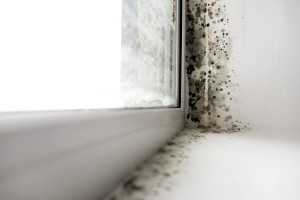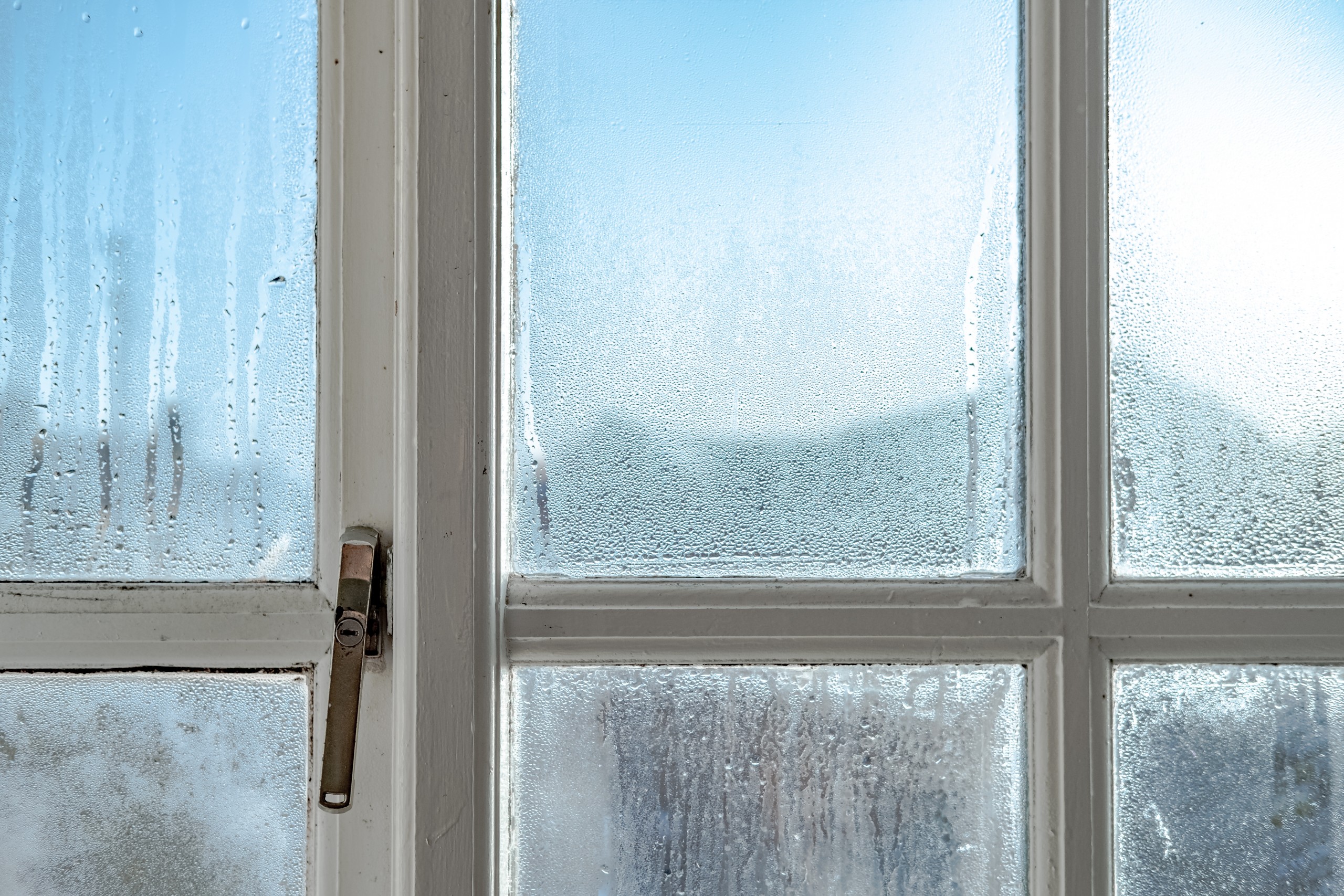Condensation on the windows of your home is not good – neither for you and your family, and not for the house itself. Aside from the annoyance of leaving wetness and reducing visibility, condensation is also a health hazard and can mean expensive repairs.
Are sweaty windows and front doors a recurring problem in your house? Especially in the cooler weather, it is not an uncommon occurrence to wake up and find your windowpanes and glass doors covered in a layer of condensation, making it difficult to see outside. Additionally, that layer of water running down your aluminium windows or French doors is actually causing you to miss out on the warmth of the rays of the sun, since the rays first have to work on evaporating that condensation barrier.
While not always an issue or indication of anything serious, it is in your best interests as home owners or tenants to be aware of when those rivulets of condensation could become a problem.
Condensation on your windows is a sign of excess humidity
Humidity comes from cooking, showering, and all living creatures in the house, including human occupants, pets and plants. There is no such thing are a humidity-free environment. The recommended level of humidity is 60%. If you are noticing condensation build up regularly around your windows, it is because there is excessive humidity in the air. It’s caused by high levels of ambient moisture inside, and exacerbated by a warmer air temperature inside than the window surface.
What is window condensation?
Window condensation is chemistry at work. It is what happens when the humidity in the air comes into contact with something cold, and then condenses to reach a liquid state from its earlier gaseous state. Or to put it simply, warm, humid air plus cold surface (the window pane) equals condensation.
Is condensation on the inside of your windows bad?
Condensation is never a good thing, because it means there is excess water inside, which can have negative effects on your health and your home.
Can condensation be bad for your health?
In terms of health, anyone with respiratory problems and chronic conditions like asthma will suffer if there is excess humidity and condensation build up in the home. And, some perfectly healthy people can react badly to condensation, which can show up in the form of throat issues, blocked nasal passages, watery or itchy eyes and skin irritation. And of course, no one wants to be in an environment which feels damp and cold, which can happen with constant window condensation.
The excess dampness of the home makes it harder to heat, so harder to get dry and more expensive to keep warm. The WHO recommends the inside of a home be kept between 18oC and 21oC, especially for vulnerable young and old people who are prone to respiratory illnesses. The average home temperature in NZ is 16oC, with many far below that.
Condensation can lead to mould and mildew developing in your home. This can add to the health issues. Some people are immune to it, whereas others with respiratory problems (asthma, lung disease or reduced lung capacity) can find that these conditions are exacerbated by the condensation build up inside of their home’s windows. Condensation can also cause eye and skin irritation, clogged nasal passageways, or wheezing and throat scratchiness.

Condensation on window causing mould
What does condensation do to your home?
The excess water can rot and weaken your wooden joinery and window frames. Aluminium joinery, unlike timber joinery, does not rot so it is less likely to cause serious damage to the structure of your windows and doors in case of condensation. You can simply wipe off the condensation every day.
Even though the condensation might be gone, there could be a more serious problem brewing; mould. This can grow in walls and roof spaces, infecting the home before you can see any visible signs. This can weaken the structure of the home, cause rot, and need expensive repairs if let untreated. Even visible mould is difficult to treat- bleach simply removes the visible ‘branches’ of the tree, not killing the roots.
What can you do to prevent condensation on your windows?
If condensation on your windows is something you are worried about, the first thing to do is ensure that the humidity level in your home is under control – it should not exceed the recommended 60%. Basic ways to prevent condensation include:
- Using a dehumidifier
- Not overheating rooms
- Turning on bathroom fan during and for a while after a shower
- Keeping bathroom and kitchen windows open
- Using an extractor fan in the kitchen when cooking
- Airing the house, especially in winter
If none of these strategies are helping, the problem may be due to a leaky home or low-quality build. Get a builder in to inspect the home and make recommendations. In addition, having high quality double glazing rather than single is also a good way to reduce condensation formation on your windows.
Contact us to discuss double glazing options. We can provide you the best window treatments and options to minimise or resolve condensation issues. We assure you a high standard of work and customer service, and will work closely with you, your architect and builder, to ensure you get a quality finish—with no condensation, mould, or mildew.
View All Articles